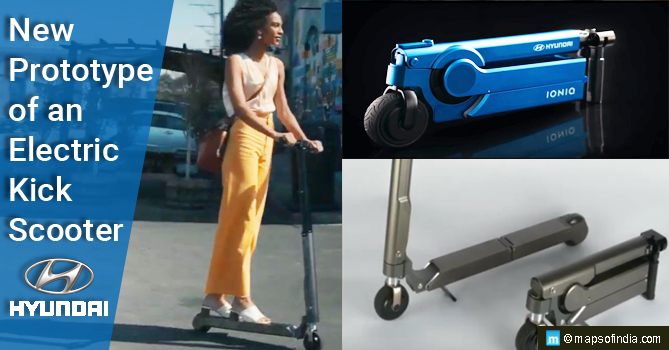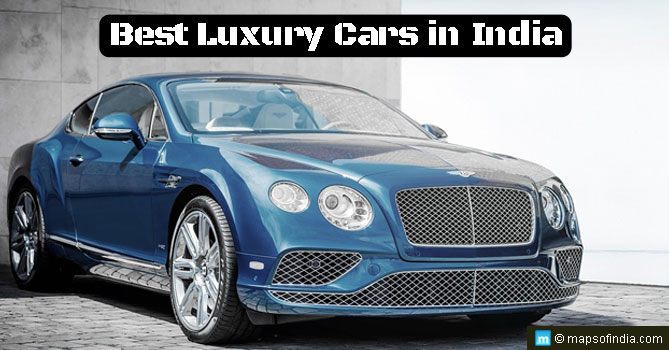
Hyundai motors have recently unveiled a prototype of their first electric kick scooter. The company first presented this concept in 2017 at CES (Consumer Electronic Show) although the new model has been upgraded from its initial concept in 2017, shifted from front wheel to rear wheel drive, more capable lithium ion batteries and beautiful front and rear lights.
Features and woo how
With this new concept Hyundai motors plans to enable first and last mile mobility in its cars by integrating the scooter with future Hyundai and Kia vehicles. The e-scooter self charges its battery by the simple principle of power regeneration – the more it moves, the longer the battery stays charged. This amazing and innovative system ensures the rider to complete its journey without the worries of power running out.
The biggest and most notable change in the 2019 model is the shift from front wheel drive to rear wheel drive; this feature ensures the safety and stability of both the rider and scooter as it places the weight near the rear end. Another big feature which was added to the scooter was the suspension in the front wheel, providing for a smoother, more maneuverable and seamless riding experience especially on those bumpy uneven roads.
Dong Jin Hyun, head of Hyundai Motor Group Robotics team, shared that they are planning to feature this vehicle mounted personal scooter in all their future cars. Their idea revolves around making the lives of customers easy and enjoyable, which is exactly what the scooter intends to do. Hyundai ensured that this personal electric kick scooter will help reduce the time consumption and make the first- and last-mile commuting fun; this would also cut down on the traffic congestion and emission in cities.
Power and Sustainability
The electric kick scooter has a 10.5 Ah lithium and this gives the scooter prototype enough power to produce a top speed of twenty kilometer per hour and complete a twenty kilometer journey on a single charge. The scooter is easy to carry around due to its compact tri folding design and its light weight that is 7.7 kilograms, all these features make the scooter lighter and more compact than any of its rival products in the market. It has a digital display that shows battery status and speed of the bike. Two contemporary curved front LED headlights, and two rear tail lights aid in riding out the dark. The engineers are planning to further develop the prototype by adding a regenerative braking system to increase the range of the scooter by seven percent.
Hyundai is dipping its toes in the micro mobility market as its said to be the auto industry’s next big thing. Data collected by the global consultancy McKinsey & Company suggests that the market in the US, Europe and China in the last mile mobility sector will grow up to five hundred billion US dollars by 2030.
What is First – to – Last mile commuting?
The term last mile is not new to the dictionary it was first used in the telecommunications industry to refer to the last leg of telecommunication network that deliver the services to the customers. In the transport or automotive realm the term “last mile” is used to describe the last part of the journey for example, the transport of goods from the port to their final destination or the distance from the parking to one’s house, office or market etc.
This leads us to the purpose of last mile transportation?
Recently in urban travels the biggest problem faced by people is the shortage of parking spaces, especially somewhere near their destination. This is known as the last mile problem. It is not always possible or convenient to get to the market or the office after parking the car somewhere, or from the bus or metro station. To reduce this amount of time and expense of energy, the auto industry has come up with the solution of last mile transportation.
Another problem that micro mobility transportation challenges are the traffic congestions as it can help navigate through packed roads overflowing with cars and reduce the amount of time we spend in traffic. This kind of transportation is also environment friendly and reduces the amount of pollution in our vicinity as most of the vehicles used for this transportation are electric based.
India has seen some large numbers rise and promote electric technology in the last few years and in some well styled packages. Yulu, a Bengaluru based e-bike ride sharing startup, with its Yulu Miracle electric bike offers last mile service It has already been set up in Navi Mumbai and Bengaluru for past six months. They recently launched their company in Delhi in partnership with the Delhi Metro Rail Corporation (DMRC) which they plan to expand by December this year by adding 5000 more Yulu Miracles e-bikes.
Related Link:
Hero Electric Introduces a Range of New E-Scooters





